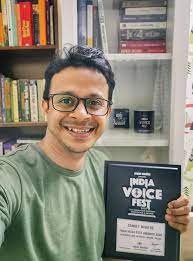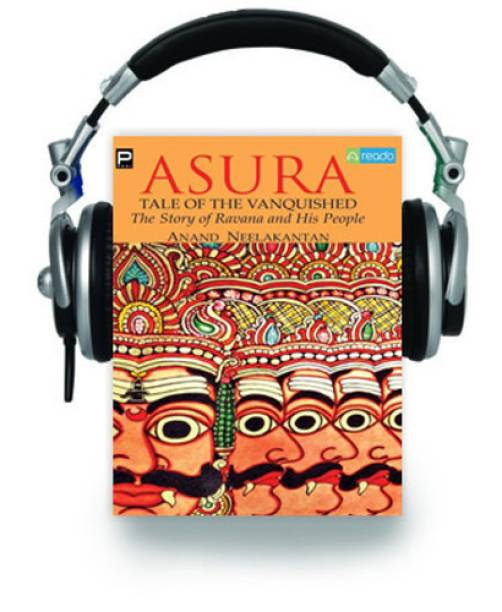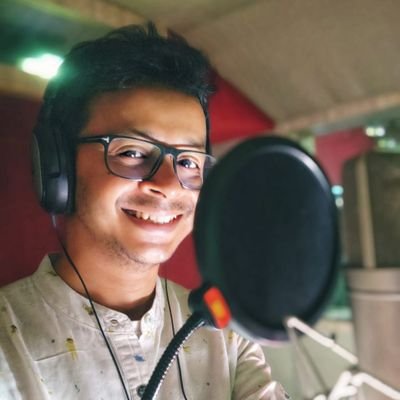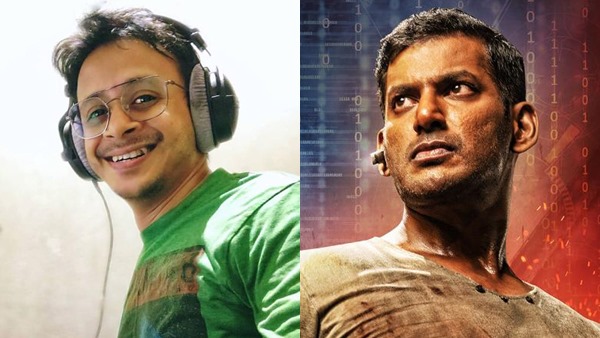Sanket Mhatre is arguably the most popular Indian voice artist. Among other notable performances, he has voiced for both Bear Grylls, and Ben10. That is some range…
He has also been dubbing for many Hollywood films, South Indian films and animated films, as well as for shows for Discovery, TLC, along with television commercials and radio spots on television. He even narrates for audio books! Like we told you before, the man has an incredible range.
Luckily, the team at CareersIndia got a hold of him, and we asked him some questions that aspiring voice actors would really like to know about. He was kind enough to provide detailed answers, and explained everything to us in simple terms. Here’s how it went:
First of all, do you think any degree/course/diploma should be done by people who aspire to become a voice artist? Why/ Why not?
Voiceovers even today are an unconventional career choice. By that I mean there are no degrees or diplomas in place for being a voice actor that are recognized by the government or the industry as such . So the way to study about voice overs is to either do courses, or to attend workshops by eminent voice artists and voice coaches.
That is one way that you can become a voice actor, however, there is no compulsion on this. From personal experience, I got into the industry at a time when I was quite unaware about the entire field. Everything happened by accident, and I ended up learning on the job. However, this was roughly fourteen years ago and a lot of things have changed in the industry.
The thing that would be difficult for a newcomer now, is that people don’t have the kind of time that they had a decade ago. So they don’t have the patience to teach you, they don’t have the studio time to work with you, and more importantly, to work on you.
On the flipside, good things have also happened in the past decade. A lot of workshops available are now online. Because of the whole pandemic situation, a lot of these coaches or voice artists have moved their voice education online. So, regardless of the distance or regardless of where you live, you can now easily access really quality voice education from the convenience of your own home.

If you could go back in time and talk to your younger self, what advice would would you give him about this career?
Be open to unlearning. What happened was that I stumbled in this field at a stage in my career where I did not understand that there are a lot of different aspects to voice acting – you could be voicing for a television commercial one day and you could be voicing for an audio book on the next.
All these different media forms require a different approach. However, the mistake I made early on was that I followed a single approach and tried to perform all of these different voice genres. That’s where I failed, and then I realized that I had to unlearn a lot of things and approach each thing based on its own unique requirements.
For example, an audio book would require me to have clarity of diction and clarity of voice, and I would need to maintain a steady pace. On the other hand, a film would require me to be honest to the to the actor’s performance, and to play up the emotions wherever required. And a television commercial would expect me to be a bit louder and emphasize on key words.
There is no one size fits all formula for voice overs. It totally depends on the project that you are doing.
How’s the scope of voice acting in India? Do you see demand increasing in the coming years?
Honestly speaking, the scope of voice acting in India has increased tremendously. There is a lot more voice work now because a lot of big companies are expanding the market by getting content dubbed in a various different regional languages.
With the advent of OTT platforms, a lot of new web series and foreign language films are being brought to India and that has helped further.
The industry actually quite frequently makes surprisingly good profits on their dubbed projects, which sometimes even compete with regular Bollywood and Hollywood films in terms of business. I would say that this is a great time to get into this field and become a voice actor.
Walk us through a day in the life of a voice artist.
I would generally have a scheduled time for a recording, and if it’s a film, I go to the studio and the director then briefs me about what the film is like, what my character is like, what is his emotional graph, what is the crux of the film, and what are the points that I would need to keep in mind when I’m voicing for the character.
This procedure takes about fifteen to twenty minutes and then I start dubbing.
To start dubbing for a book, more often than not the manuscript is provided to us beforehand so we end up doing a little bit of reading and a little bit of homework. However for most visual product projects like movies, we only see the script when we reach the studio. This is done for copyright reasons.
So the videos and the script only come once you’re right there in the studio. It requires a tremendous amount of preparation on an artist’s part to to be able to adapt to whatever is in the script or whatever the actor is performing on the screen. I typically do about two to three recordings a day depending on what they are; if there’s a film it probably takes up the major part of my day.
Generally speaking, films take around two to three sessions, depending on how much the lead actor has spoken or the character that I’m voicing for has spoken. Animation episodes take about an hour or two. Audiobooks take three to four weeks depending on the length of the book. Commercials are usually wrapped up under an hour or so.

What are some resources that you would recommend to beginners in voice acting?
Like I said in the beginning of this interview, there are a lot more resources available now compared to when I started my career as a voice over actor. Youtube is really handy to get great authentic information. Look up the recording sessions of your favorite voice artists; you would learn a lot.
There are no specific websites that I would recommend but Googling will definitely provide you an answer to your query. Apps like Udemy provide online courses for voice acting that one can do at his or her convenience.
They use curated videos, and also these courses are not that expensive; you can easily get them and store them on your phone.
As far as books are concerned, there is one book that I would highly recommend which is “Voice-over Voice Actor”. It is authored by two of my favorite voice artists – Yuri Lowenthal and Tara Platt.
Yuri is the guy who voiced for Ben10 originally and also for Sasuke from Naruto. Tara also did a character in that show.
They’re really great and their approach is beautiful and they are really amazing humans. The book reflects that, and it’s a great hand-hold book to start your journey in voiceovers.
Because of the lock down, I also ended up creating some resources for aspiring voice artist in related to breathing exercises and techniques. You can check those on my Instagram.
Do you think that voice acting is a profession that pays well? How are things in this field, monetarily speaking?
When I am talking to youngsters, I always tell them that for the better part of your initial journey, don’t bring money into the equation.
Of course, if you are working and if you’ve done a project for somebody, even if it’s the first day that you are voicing, please charge them. But don’t think about big money in the initial years of your career.
This is the time when you should be trying to learn the tricks of the trade.
From personal experience, it took me about four to five years in this industry to get my foot in the door. Eventually, I started getting better projects and the result of that was getting better money.
But since you are asking about money, commercials are something that pay well vis-à-vis the time that you spend on them. A theater film would probably pay you anywhere between ten thousand to two lakh rupees depending on how big you are as a voice artist. However, this is just a ballpark figure as the money depends on a lot of different factors.
For audio books, it could range from anywhere between three to five thousand rupees per hour. Some experienced voice artists even charge ten thousand rupees per hour of recorded output. Commercials could go anywhere from three thousand to thirty thousand rupees.
It also depends on how much you’ve valued yourself. It is very important to set standards for yourself. Never do anything for free. Understand that when you’re performing in front of the microphone, you are using your skills for a certain task and somebody expecting you to use those skills for free is not cool.
Make sure that you revise your fees as and when you think that you’ve climbed up another rung of the ladder. Look out for number one.

How does one actually become a voice actor?
Honestly speaking, there is no one way to become a voice actor. Many of us who entered this field have made it because of sheer accident or through recommendations.
However, now there are better avenues to get into voice overs. Because of the amount of online classes or voice courses that are available, you can actually end up polishing yourself before you even approach a studio with your samples. So, the simplest way to do this would be to start working on yourself.
I would recommend that you start reading aloud and working on your emotions. Doing a theater workshop really helps with these things. They help you with breathing, they help you with your volume, they help you with projecting, and they also help you with changing your emotions which is very important.
Especially if you’re looking to be a voice actor for animated or live action, it becomes really important to have a command on that aspect.
And generally to be a better a voice actor, you have to master the language in which you plan to voice; whether it is English, Hindi , Marathi, or some other language. You have to be able to read it and write it.
If you want to be a good Hindi voice artist or English voice artist, then you also have to work on getting rid of regional accents so that you can speak neutrally.
The next step, logically, would be to hire a studio local recording studio and work on some sample scripts and make a few demos. Mix and master them well; maybe ask them to lay down some music to enhance the effect even further. Then you can send out these demos and samples to studios in your area; you can either approach them physically or you can find their email addresses of google.
Politely telling them that you want to become a voice actor and that this is your range would help.
Ask them if there is any way that they could call you in for auditions, or if they could add your samples to their voice bank. Hope for the best. I’d say that anybody who wants to become a voice actor needs to give at least six months to an year before he even tries to turn professional.
What is one common myth or false conception about voice artists that you want to debunk?
One of the biggest myths that I want to debunk is that people have this thing about the voice- it has to be a certain way, it has to be really heavy, it has to be ‘baritone’ if you want to become a voice actor. That’s really not how it works.
I was corrected when I tried to replicate an Amitabh Bachchan style voice. The whole point is that when you’re watching a film if everybody starts speaking like Mr.Bachchan, there is no fun in the film at all. Everybody has a different voice, a different tone, and a different way of speaking and the biggest myth is that there is only a certain type of voice that can help you become a professional voice actor. This is absolutely wrong.
The only thing that you need to understand to be a great voice actor is how you can use your voice, how you can mold it, and how you can modulate for every project so that the listener gets the best experience.
And honestly speaking, the more weird the voice or the more weird you make the character, the more memorable it gets.
If you are passionate about being a voice artist, it doesn’t matter what you sound like. What matters is how you use you voice.
What is your biggest professional ambition?
My biggest professional ambition has always been to work with Pixar or Disney or the Japanese animation studios in an original project to create a character. Not dubbing a character that has been already created by someone else, but to work with those teams during the creation process to understand firsthand what goes into it.
Besides that, I’m also an avid gamer. I really love gaming and I want major gaming companies with AAA gaming titles to come to India and get gaming dialogues dubbed as well, and provide that as an alternative audio option to Indian gamers. So, I hope to be a part of something like that.
Did you like the article and found it informative? Then please share it with fellow voice actors so that they can make well-informed decisions about their professional life. Subscribe to our newsletter to get a weekly update about the different career options added on the website. And a big thanks to Sanket for agreeing to do this! Follow him on Instagram.
